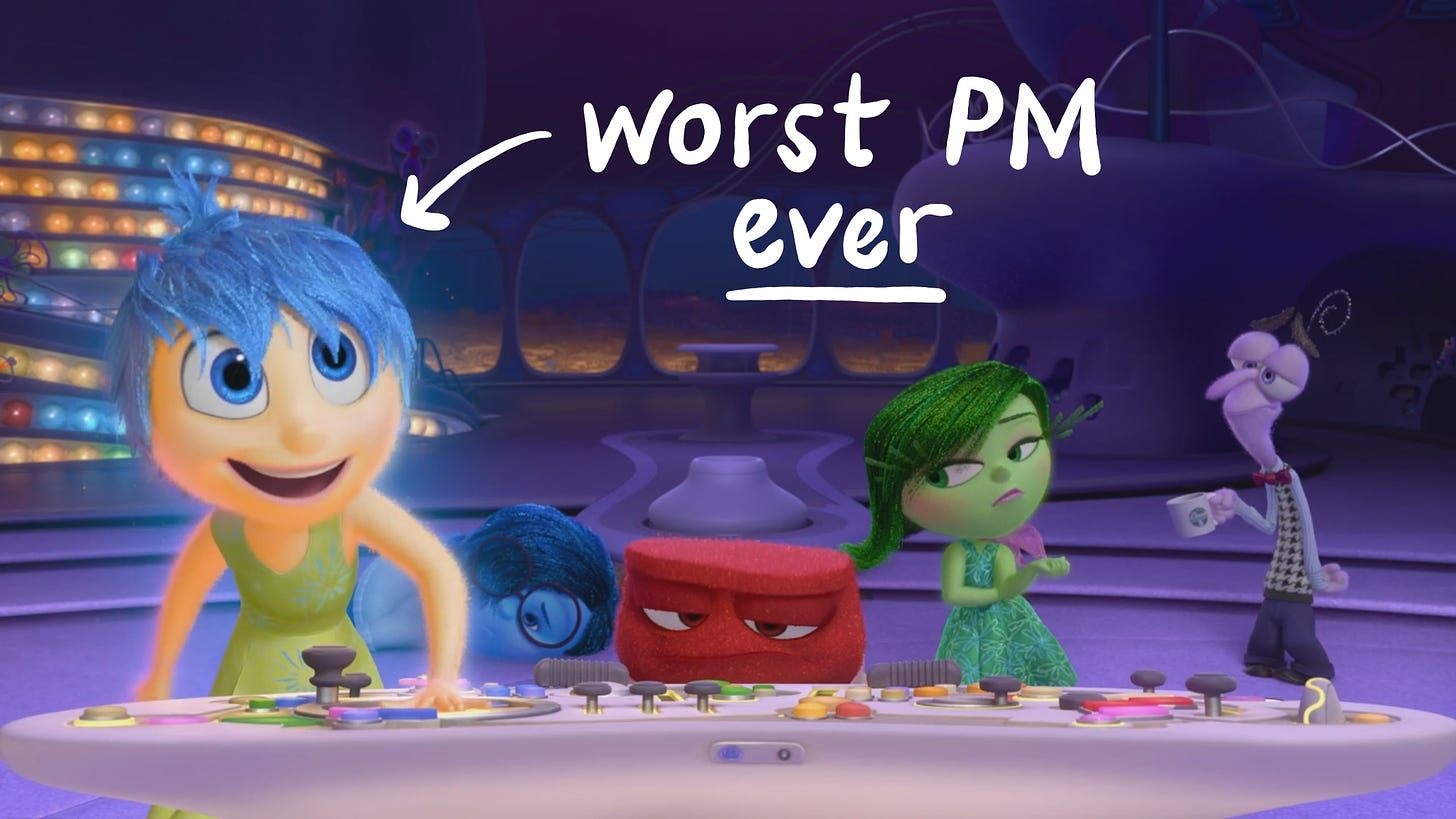Update: Holy Crom on his royal throne, I can’t believe the great critiques this has garnered! I’ll turn off the comment function on Thursday, and will start penning a post responding to these. Look for it (and the crowning of one critique as the winner) in the next few weeks. In any case, thanks to everyone who’s been kind enough to identify possible disasters.
Imagine we win.
Imagine we work hard and create a new school that puts Egan’s approach into practice. Imagine the best of all possible worlds: a devoted faculty, ample funding, eager parents, vivacious students.
And now imagine that after twelve years we all look at each other and nod in complete agreement: this is not the educational innovation we were looking for. Our attempt was flawless, but the program was flaw-full.
We all go our own ways. “Egan education” goes down as a footnote in the history of schooling as “yet another idea that promised the moon but delivered a sack of crap.”
What might have gone wrong?
1: A bleg for help
I’d like to ask for your help: could you list, in the comments, as many possible problems as you can imagine with an Egan approach to education? Weaknesses, inelegances, fatal flaws, etc.?
If, in replies, some of us want to respond to the possible problems, feel free — but what I’m looking for is as much help postulating potential problems.
Heck, let’s make this a contest: next weekend, I’ll grant one poster everlasting glory (by picking out one of their “possible problem” comments as the best).
Some questions:
Q: There are some things I’m iffy about, with this whole Egan approach, but I don’t know if they’re flaws, exactly.
List them here! The things that feel “iffy” now might be the things likely to blossom into fatal flaws later. (And wouldn’t it be nice to see those coming?)
Q: What if I haven’t actually read Egan, just stuff about him (like these blog posts, or the ACX book review)?
Don’t hold back! (The quantity of questions will be just as useful as their individual quality.)
Q: What if what I think is a flaw in Egan’s approach is actually just misunderstanding on my side?
Then I will cry with joy. (It’ll be helpful for me to see likely misunderstandings of Egan’s ideas.)
Q: Should they be problems with starting schools in general, or with Egan’s approach in particular?
I’m more interested in finding flaws with Egan’s system, but I won’t shut down other ones. (They might be helpful for some of us.)
Q: Wait, are there flaws in Egan’s system?
How could there not be? Goodness, Egan himself admitted that his whole cultural–cognitive toolkits approach sometimes sounded ridiculous. And there still hasn’t been a full, K–12 Egan school yet in existence — as the Prussian field marshal said, “no plan survives contact with the enemy”.
Q: I have some straight-up questions about an Egan approach to education; can I post them below, too?
Go for it. No time like the present. I’ll try to respond to the simpler ones right away; the bigger ones might take me longer (and I might save some of them for full posts).
Q: Wait, why are we focusing on problems?
Yeah, let’s talk about that.
2: Let’s just pretend we’re all covered in someone else’s guts
This is what’s known as a “pre-mortem”. I like pre-mortems, because I’m an aspiring Stoic, and thinking about disaster puts me at ease.
You know what a post-mortem is: you’re a doctor, and a patient comes in complaining of a pain in their knee. You and your team descend upon them to fix the problem… and a half-hour later everyone is covered in viscera and blood, the patient is dead, and you’re looking at each other, mumbling how did that go so wrong?
That’s a post-mortem.
A pre-mortem is when you just pretend all that happens, and fix the problem ahead of time.
3: Away with ye, optimism! (but don’t go far)
I’m an aspiring Stoic; I’m also infested with maniacal optimism. I think these pair well.
Whenever I embark on an exciting project1 — I’m connected to that feeling of freshness, excitement, adventure. It gets me out of bed, focuses me through the day, and gets me to stay up late.
Optimism is a helluva drug… and drugs can be dangerous. Optimism blinds us to reality. It gets us thinking this is idea is so wonderful that nothing at all could go wrong, when of course things will go wrong — some of which are obvious to other people.

To put it in different words: optimism closes down part of our imagination. And pre-mortems open it back up.
So: how could this all go horribly wrong?
And I literally can’t imagine a more exciting project than the one we’re embarked on.








The path from Egan’s theory to practice is unclear. Therefore:
1. Egan based practical advice / standards coalesce into different warring factions. There’s no clear winner and resources get wasted just trying to make the other guys look bad.
And / or
2. Egan based practical advice / standards are vague and undifferentiated from standard best practices. (Eg storytelling) Results are therefore ok, but not significantly different from the status quo.
----
Education, like parenting, doesn’t really matter. Once you get passed a low baseline (don’t abuse them!), kids will be who they will be.
What if it doesn't scale?
It seems that Egan's ideas could work very well for teachers of smaller classes who are willing to adapt their curriculum to their students needs. In a larger classroom with a wide diversity of abilities, knowledge and interests, this gets much harder. In fact, I find managing this diversity the most consistently difficult and confounding issue I face as an experienced teacher.
Because Egan teachers ask students to engage more deeply with the material, at the level of meaning rather than at the level of output, it may be more difficult to pull in students who are simply seeking to learn relevant skills and go home.
What if Egan's methods distract from the true purpose of education? What if all the students attending after-school math tutorial, grinding standardized test results and making it into competitive universities are actually going to eat the world?
Geez I feel like Riker prosecuting Data in Measure of a Man...